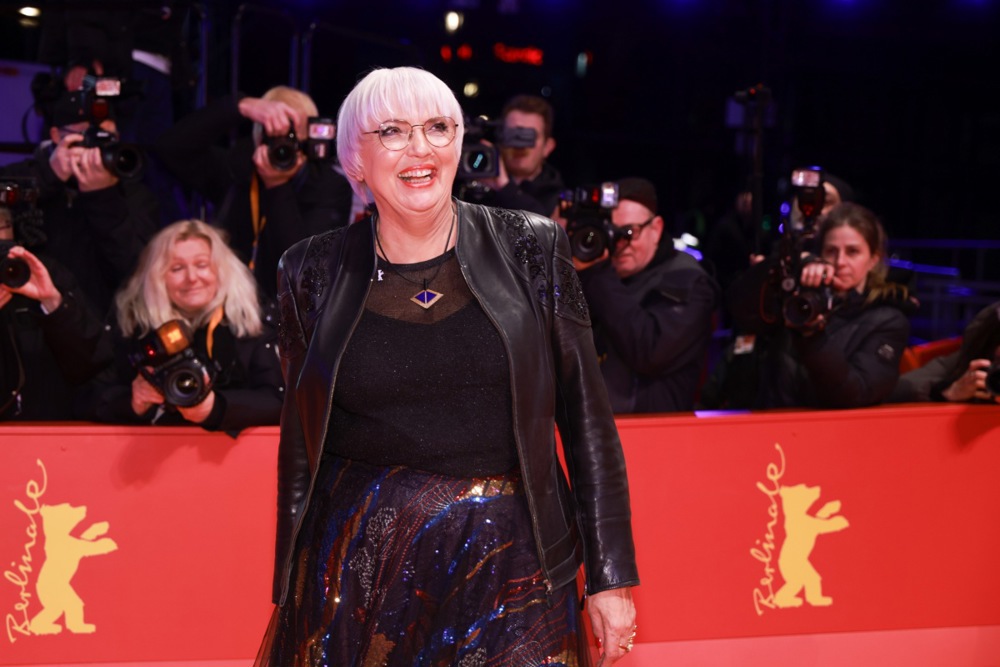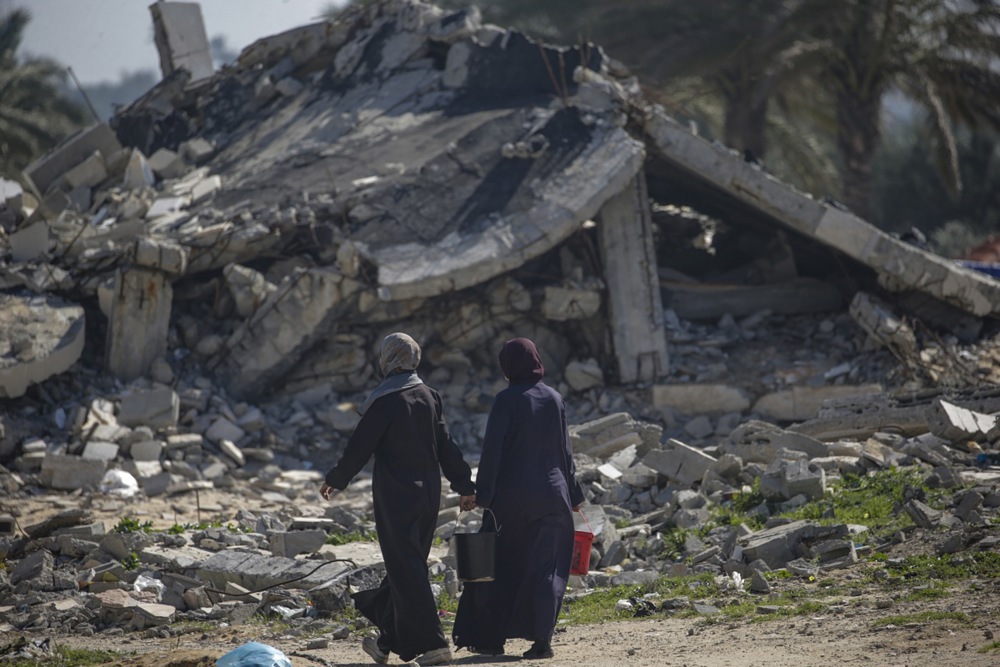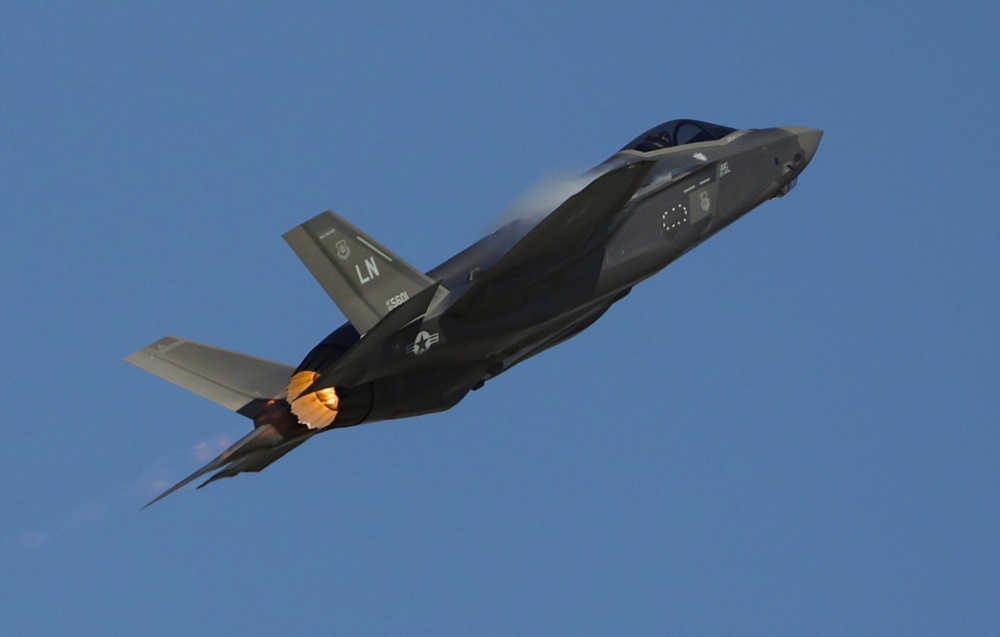The opening of the National Holocaust museum in Amsterdam was targeted by protestors amid sickening chants of anti-Semitic hatred such as “Get lost, cancer Jews”.
More than 2,000 demonstrators took to the streets on March 10 as Isaac Herzog, President of Israel, was attending the opening of the museum.
Other chants such as “Free Palestine”, “Cancer Zionists” could be heard. The police in riot gear were present in large numbers, as some protestors clambered onto a police vehicles.
Ogen vol haat, de Hitlergroet, terroristen, "oprotten kankerjoden" en overlevenden van de Holocaust die bij verlaten van de Synagoge worden uitgekaffert door brullende Jodenhaters die bewust heel dichtbij het #Holocaustmuseum mochten komen. Wat een inktzwarte dag voor Nederland pic.twitter.com/iVsLVUlDdU
— René Kemp⭐ (@rkemp59) March 10, 2024
Dutch newspaper De Telegraaf called the incident “an absolute low and a great shame”.
“That supporters of the murder gang Hamas are allowed to spout their venomous hatred time and again and now even at the opening of the Holocaust museum is downright shameful,” it said in its lead column.
There were many Palestinian flags visible in the crowd and a Samidoun flag was seen. Samidoun is nominally a solidarity network for Palestinian prisoners but is banned in Germany for spreading anti-Israel, anti-Jewish propaganda and its alleged links with the Hamas terrorists.
Aggressive protestors shouted and whistled loudly during the speeches of several heads of state present. The heckling continued as a survivor of the Holocaust and his great-granddaughter officially opened the museum.
Some demonstrators hurled eggs, fireworks and stones at officers and daubed police vans in paint.
At the time of writing, 13 people had been arrested.
De agressie van de haatzaaiers richtte zich gisteren ook tegen de jongste generatie joden. De achterkleindochter van overlevende Rudy Cortissos wordt uitgescholden. Dank burgemeester van Amsterdam dat u deze historische dag hebt laten ontsporen tot een van de zwartste voor joods… pic.twitter.com/DvcXWM3j7W
— Ron Eisenmann (@RonEisenmann) March 11, 2024
Ahead of the opening, Socialist politician Kati Piri published an open letter, describing the presence of Herzog as “painful”.
“Under the current circumstances”, apparently referring to the war in Gaza, “his presence is unwanted”, Piri wrote.
She called on Dutch Prime Minister Mark Rutte to “demand a cease-fire” in Gaza and to “end the collective punishment of Palestinians”.
Piri’s letter caused friction within her PvdA party.
As part of that, Ronny Naftaniel, the former director of the Centre for Information and Documentation on Israel (CIDI), cancelled his 45-year-old membership of the party.
He called it “indigestible” that the PvdA believed the presence of the president of the Jewish State “overshadows” the opening of the Holocaust Museum. Others within the party called Piri’s letter “completely crazy”.
Yuval Gal, founder of the Jewish anti-Zionist organisation Erev Rav, which helped initiate the demonstration, said: “Don’t make it political, people at the Holocaust Museum say. But we cannot remain silent when genocide is imminent, apartheid or occupation.”
Gal called on the prosecutor of the International Criminal Court in The Hague to order the arrest of Herzog.
NGO Amnesty International was also in support of the protest. A spokesperson said the group had no objection to the opening of the museum but was against Herzog attending, holding him accountable for what is happening in Gaza.
Many in the Netherlands took offence at the protest. Outgoing Justice Minister Dilan Yeşilgöz described it as “extremely painful” and expressed the hope that a wide range of people, including those who deemed it necessary to target Holocaust survivors at the opening, would visit the museum.
Others also wondered why the protest was allowed to take place at all so close to the museum and in a symbolically potent area.
Nestled in Amsterdam’s Jewish district on Plantage Middenlaan, the Holocaust Museum occupies a prominent position across from the Hollandsche Schouwburg. The site holds significance as a location from which a substantial number of Jews were deported during Second World War.
More than 100,000 Dutch Jews did not survive the Holocaust.





